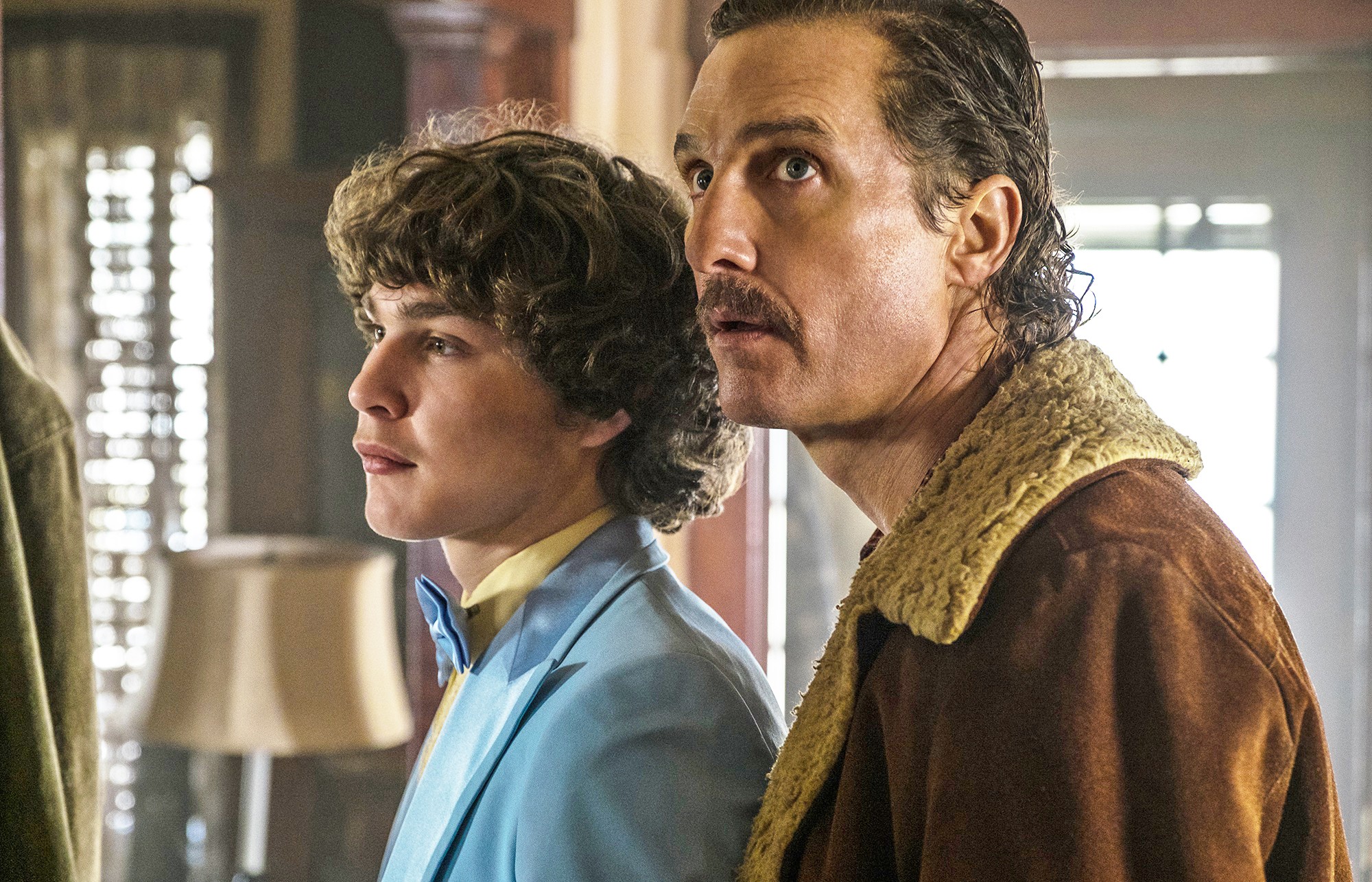Never believe anyone who tells you that crime does not pay. From multi-million dollar Ponzi schemes to amateur corner store heists, the life of crime can be quite profitable, and no one knows this better than American filmgoers.
There is an inherent sense of adventure associated with Hollywood’s interpretation of the criminal high life. Adrenaline-laced pursuits, drug-addled parties and bikini-clad models are typically tossed into the pot whenever studios decide to cook up another film based around suave felons.
Even when movies like “The Wolf of Wall Street” or “Ocean’s Eleven” stoop to their lowest, a certain amount of seductive flair allows audiences to stay strapped in for the ride. Who wouldn’t jump at the chance to snatch Danny Ocean’s life for a day, and, exploitative debauchery aside, Jordan Belfort lived like a king for the years before he was imprisoned. Nevertheless, after watching “White Boy Rick,” you’ll maybe want to reconsider planning any bank heists in the near future.
Based on a true story, “White Boy Rick” centers around Richard Wershe Jr., a Detroit teenager who managed to become the youngest FBI informant in history before he settled into an ulterior role as a cocaine dealer in the 1980s. Oh, and by the way, all of this happened before he turned 18, a fact that makes me question what I’ve been doing with my life all this time.
Before I continue, let’s get one detail out of the way. This movie is far from a classic, and I can almost guarantee you that some people will find the film dull, scattershot and messy, because these notions all crossed my mind as well. As such, these factors prohibit “White Boy Rick” from achieving all-out greatness, but cannot stop the film from stealing the title as one of 2018’s best releases.
Unsurprisingly, Matthew McConaughey — who portrays Richard Wershe Sr., Rick’s gun-dealing father — continues his streak of charming his way into my heart with yet another captivating performance. Coupled with naturalistic camerawork, these two elements pack the emotional punch that the movie desperately needs when the film delves too deep into unsympathetic territory. Furthermore, first-time actor Richie Merritt portrays Rick in a modest, albeit believable fashion while showing he possesses the potential for stardom.
Remarkably, “White Boy Rick” diverts from nearly every aforementioned trope associated with crime movies, and if it does not swerve around the cliché entirely, the film finds a restrained method to flip the script and use the familiar beats of the genre as a method to examine themes instead of exploit questionable behavior. The movie does not meander into fantasy fulfillment for a moment.
While the marketing may ramp up the glitz, don’t believe the hype. There is no glamour to be found over the course of this depressive character study. “White Boy Rick” starts off gritty and ends outright filthy, retaining its aesthetic of antiheroes, decrepit environments and violent consequences for the entirety of the runtime.
Director Yann Demange employs an off-kilter pacing that simultaneously favors character-centric moments but never compromises narrative flow. While this artistic decision causes the film to trip over its own feet more than a few times, it also permits the film to impart the messages and themes planted at the story’s core. As a result, these motifs boost “White Boy Rick” tenfold in terms of memorability.
In fact, once you peel away the seedy garnish of narcotics and street warfare, the film is more about the beauty of family and the faults of human nature. Family, and children in particular, continually function as symbols of hope for both Rick and his father, and, in many ways, offer the characters, and the audience, a welcomed reprieve from the film’s suffocating atmosphere.
Elsewhere, the concept of cycles serves as an underlying idea that pops up on occasion, showcased by characters unable to break away from the temptation of their destructive patterns of behavior or literally repeating lines of dialogue from earlier. Conversely, “White Boy Rick” never outlines a template for morality, with authorities and drug lords placed on either end of a level playing field.
While the film never justifies Rick’s drug dealing, it does not venture out of its way to depict the overt consequences either. Both parties are equal in their faults, but neither party is villified. They are simply people attempting to achieve what they perceive to be right in their own eyes by any means necessary, leaving the ethical particulars for viewer interpretation.
On a social scale, “White Boy Rick” tackles the defects within the American justice system and the futility of the war on drugs, both of which pull a repressed sentiment of cynicism to the forefront and round out the movie’s ode to human nature, a tune that lingers somewhere between hopeless and bittersweet.
All compliments and critiques considered, “White Boy Rick” is a subtly complex film that shines a realistic light on the ever-idolized, often-imitated life of crime. Yes, crime pays but is it truly worth anything in the long run? Are individuals like Richard Wershe Jr. products of their environment or purely the result of selfish choices? On the whole, the movie leaves you with more questions than answers, but “White Boy Rick” is the rare instance where I will credit that statement to a result of effective filmmaking.
Although I walked into the film expecting a stylized, raucous merging of “Good Time” and “Goodfellas,” what I received in turn was more understated and melancholy than I ever anticipated and left me pensive on the intricacies of humanity. Granted, I’ve been known to overanalyze even the simplest of children’s flicks — so maybe I’m crazy and/or reading way too deep into this — but I honestly believe that the crime drama adds pertinent arguments to a tired conversation, and, on the whole, succeeds where its contemporaries falter. But most importantly, “White Boy Rick” tries something different, and that will always earn an endorsement from me.











